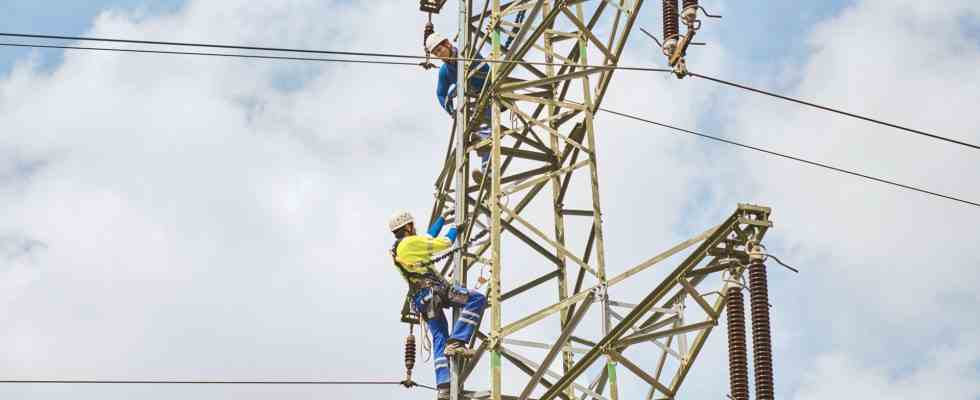Status: 03/15/2023 08:24 a.m
Germany’s largest energy supplier E.ON wants to increase its investments to 33 billion euros by 2027. In view of the energy transition, the power grids must be made more resilient.
The DAX group E.ON wants to spend even more money on its energy networks. The Essen-based company plans to increase its investments by around six billion euros or more than 20 percent to a total of 33 billion euros by 2027. The majority of the additional amount is to flow into the energy grids.
At the balance sheet press conference, E.ON boss Leonhard Birnbaum emphasized that the restructuring of the energy system is more urgent than ever: “The crisis makes it clear that decarbonization, the energy transition and the expansion of the infrastructure must be massively accelerated.” For the group’s business with reliable energy infrastructure and sustainable customer solutions, this means an enormous tailwind.
Why better power grids are needed
The importance of a resilient power grid had increased not least due to the move away from energy imports from Russia. For example, E.ON takes care of new connections for solar and wind power plants and the modernization of the network infrastructure. In addition, high investments are required to digitize the planning, monitoring and control of the networks.
According to E.ON, the grids are the backbone of the energy transition. This can only be successfully advanced if the network expansion keeps pace with the steadily growing connection requirements of renewable energy systems. As of today, around 15 percent of renewable generation capacity in Europe is connected to E.ON grids.
debt reduced
But where does E.ON get the money for the high planned investments? The financial condition in which the group is located has improved noticeably in the past year. Adjusted net income for 2022 was EUR 2.7 billion, around EUR 220 million more than in the previous year. The economic net debt of the DAX group fell significantly by more than six billion euros to 32.7 billion euros compared to the 2021 financial year.
E.ON is surprisingly ambitious
For the current year, the Executive Board expects adjusted earnings before interest, taxes, depreciation and amortization (Ebitda) of between 7.8 and 8 billion euros. Declining income from nuclear energy is to be compensated for by activities from the core business, i.e. the operation of the distribution grids and energy sales.
E.ON expects adjusted net income to be between EUR 2.3 billion and EUR 2.5 billion. The company has exceeded analysts’ expectations for both indicators. The Management Board confirmed the dividend proposal for 2022 of 51 cents per share.
The 2023 targets are well received on the stock exchange, and the E.ON share is up more than one percent in a friendly market environment on the Tradegate trading platform. Since the striking low of EUR 7.28 in mid-October, the stock has gained more than 42 percent.

